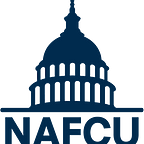Since the Great Recession, policymakers have taken important steps to protect consumers and the financial system. These steps include requiring robust capital and liquidity standards for federally insured financial institutions, examinations to ensure compliance with federal laws, and regulators designating Systemically Important Financial Institutions, or SIFIs, that could post significant risks to the financial system. While federally insured financial institutions are bound by many of these rules, there is a new set of companies seeking bank charters without offering deposit accounts. This set up is testing the limits of federal regulation and putting the system at risk.
Some fintech companies have set their growth strategies on offering banking services. Many fintech companies have announced the submission of a bank charter application or have already opened up their own bank.
Some of the strategies fintech companies can use to sidestep traditional regulatory frameworks include applying for a new payments charter offered by the Office of the Comptroller of the Currency (OCC) and leveraging state law to engage in cryptocurrency activities as national trust banks. In the case of the OCC’s payments charter, a fintech company can gain the privileges of a national charter without needing to offer deposit accounts, a core component of what makes a bank a bank.
By tailoring a bank charter application to exclude deposit accounts, the fintech bank frees itself from the supervisory safety net that exists under the Bank Holding Company Act. Ultimately, this means that the fintech bank holding company will not be subject to consolidated federal supervision by the Federal Reserve. Despite this lack of supervision, the fintech bank might also be permitted to obtain a master account at the Federal Reserve, gaining access to our country’s critical financial infrastructure while dodging the important prudential oversight that applies to traditional banks. Such an arrangement would heighten financial stability risks within the financial sector, and a serious failure of a specialized charter recipient could ultimately put taxpayers on the hook.
The bad news for taxpayers does not stop there. Financial regulators have capital and liquidity requirements that credit unions and banks must follow to maintain safety and soundness. These rules also protect taxpayers in the event of a crisis. A fintech bank that does not offer deposit accounts and manages to secure approval from the OCC to obtain a payments charter would not be bound to important safety and soundness regulations applicable to insured depository institutions.
Depending on the scale or risk of the fintech bank’s activities — which could involve facilitating cryptocurrency transactions per the OCC’s recent guidance — lack of consolidated federal supervision coupled with fewer applicable prudential requirements could create additional financial stability risks.
Policymakers must take important steps to protect taxpayers and consumers.
The Consumer Financial Protection Bureau should use its authority under the Dodd-Frank Act to extend supervision to fintechs. The CFPB should step in to oversee this grossly underregulated industry of fintech companies that offer consumers a wide array of products and services digitally, across state lines, ranging from mortgage servicing to mobile payments and peer-to-peer lending. The CFPB has the tools necessary to provide valuable oversight to players in the markets for consumer financial products and services. The rapid growth of fintech companies is likely poised to exceed the capacity of state regulators to provide adequate supervision. The longer these companies go unchecked, the greater the risk of consumers facing a significant loss or violation of their rights.
The OCC should suspend approval and future processing of payments charter applications until a comprehensive chartering framework for non-deposit taking firms is formally proposed and made available for public comment. Regulators, including the OCC, should not give preference to fintech as a new model of banking ready to replace traditional institutions, but rather seek to modernize traditional supervisory frameworks to ensure that the promise of better, more efficient service or expanded access to credit is predicated on responsible innovation rather than regulatory arbitrage. The OCC should work with other financial regulators, including the National Credit Union Administration, if it intends to introduce specialized chartering options that could impact overall sector stability.
Most importantly, efforts by regulators to explore novel chartering ideas or new standards for accessing our nation’s financial infrastructure should occur through open and transparent rulemaking processes, not through interpretative letters or agency decree. In order to protect taxpayers in times of crisis and ensure that the companies obtaining access are financially sound and comply with all federal regulations, federal regulators must commit to transparent discussions regarding what the future of chartering will look like and ensure that new models of banking are held to the same high standards that exist for credit unions and banks.
Creating a fair and level playing field is needed to ensure that market risk is minimized, consumers are protected, and taxpayers are not left holding the bag.
Dan Berger is President and CEO of the National Association of Federally-Insured Credit Unions.
